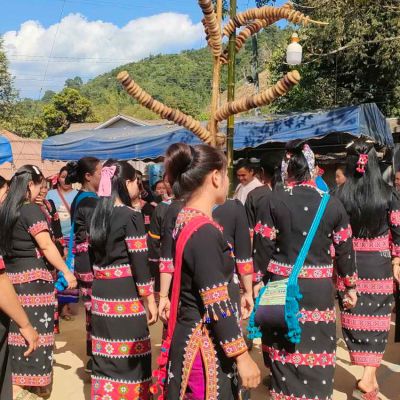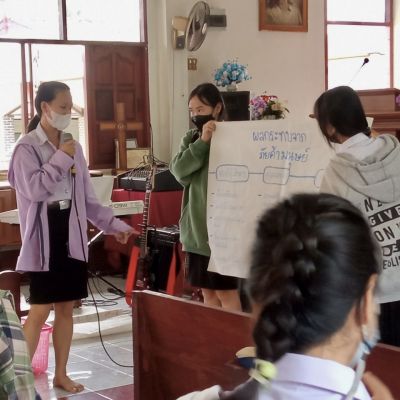CEDAR is currently implementing a poverty alleviation development project in a creative access nation. Approximately sixty per cent of the country’s population resides in rural areas, relying on agriculture and animal husbandry for sustenance, with the majority engaged in subsistence farming. Due to increased extreme weather events brought by climate change, the country has experienced heavy rainfall and floods during the rainy season in recent years. Rural villages were devastated by floods, landslides, and the resulting crop failures. The situation is particularly critical in the border areas. In the meantime, low-income families were severely impacted by high inflation rates, leading to reduced purchasing power and rising food insecurity.
To promote comprehensive development in remote rural areas and alleviate the negative impacts brought by climate change, CEDAR offers sustainable agriculture training, waste management, sanitation and health education, and leadership training to the ethnic minorities living in the border areas. Our local partner provides career development funds to villagers and helps rural communities in building sanitation facilities and water systems. These projects strengthen community resilience and empower local farmers to cope with the destruction and challenges climate change brings. In addition, our partner supports village schools with supplies of school materials, teaching resources, and sports equipment, and promotes moral and cultural education through organising language studies, enhancing educational opportunities and support for children and youth in the target areas.




